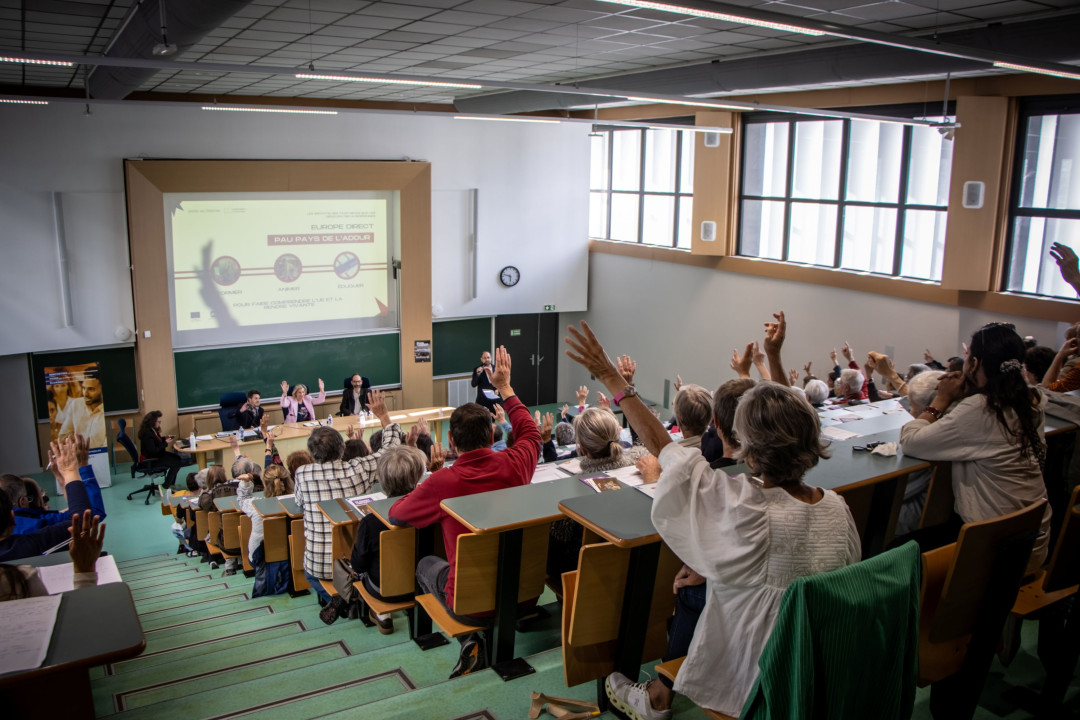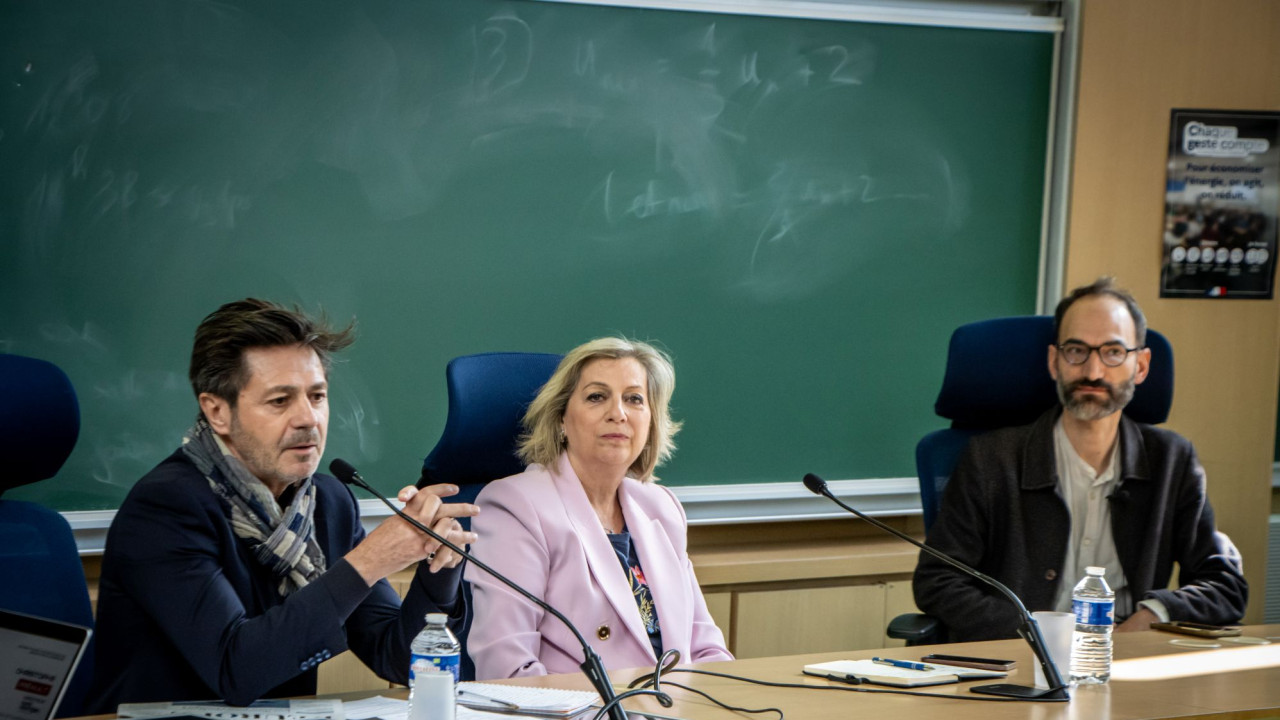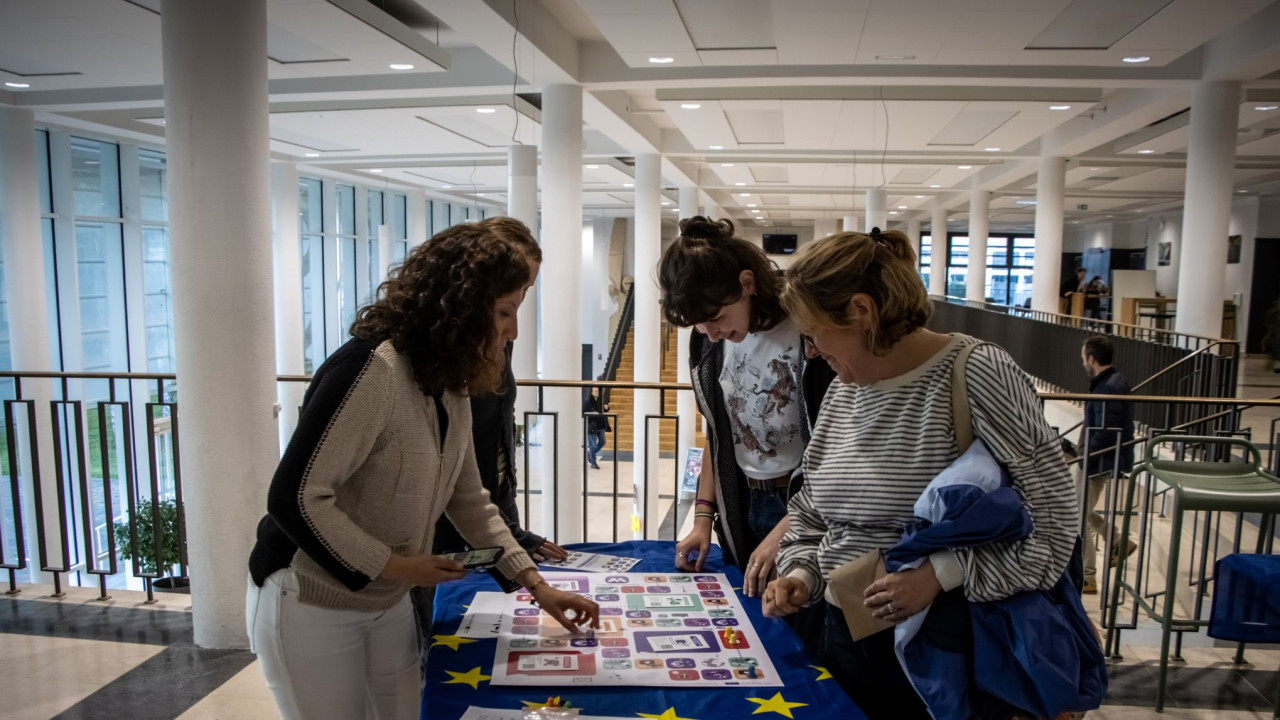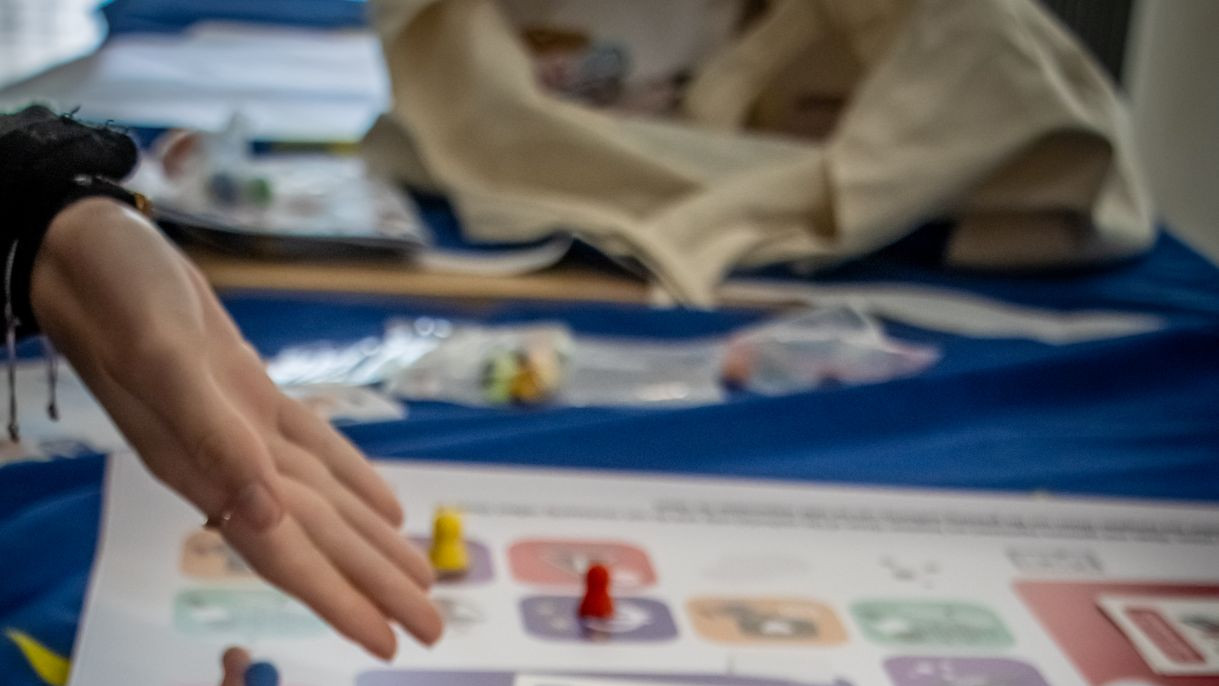On 22 May in Pau, Pistes Solidaires organised a conference-debate on fake news and its impact on European democracies. The event, which was rich in discussion, was co-constructed with local players and was attended by high-quality experts. It is part of the European CERV 'Media Masters' project, coordinated by Pistes Solidaires, which aims to promote media literacy, while raising awareness among citizens and providing them with tools to deal with the manipulation of online information.
🎥 Couldn't make it?
Relive the highlights on video👉 The impact of fake news on European democracies https://www.youtube.com/watch?v=hguCqEDmzX0&t=3s
Why talking about fake news today?
Fake news has become a major concern for Europe's citizens.
According to the Standard 102 Eurobarometer (autumn 2024):
- 82% of Europeans believe that fake news represents a danger to democracy.
- 77% think it is a problem in their own country.
The European Union: a target, but also a player in the response
Disinformation campaigns, often linked to foreign interference, target the values and policies of the EU.
The Brexit or the cancellation of the first round of the Romanian presidential elections in 2024 bear witness to this: the manipulation of information can have a major impact on a country's destiny.
Faced with this threat, the EU is taking action.
Nathalie Loiseau, MEP for the Renew Europe group, was recently elected chair of the special committee on the European Democracy Shield, tasked with addressing these crucial issues.
📎 To find out more: Toute l'Europe - European Parliament: French MEP Nathalie Loiseau elected chair of special committee on defending democracy
A number of measures have been put in place to protect the European democratic area:
The European Union has put in place a number of tools and mechanisms to defend the European democratic area:
- Code of good practice against disinformation
A voluntary commitment by digital platforms to limit the dissemination of misleading content. - Digital Services Act (DSA)
Une législation qui impose aux grandes plateformes une transparence accrue sur leurs algorithmes et leurs systèmes de modération. - Artificial Intelligence Act
Legislation on the use of AI to prevent abuses, in particular the creation of misleading content (deepfakes, fake profiles, etc.). - Initiative for the defence of European democracy
A set of measures to strengthen the resilience of democracies in the face of internal and external threats, in particular through media literacy.
📎 To find out more: European Commission - Fight against the manipulation of https://commission.europa.eu/topics/countering-information-manipulation_fr



